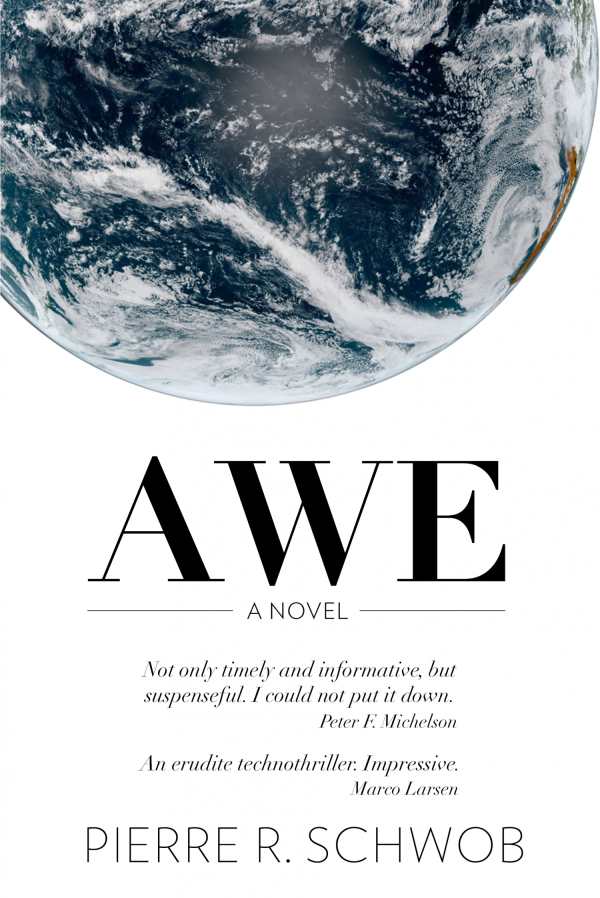AWE
Grounding its speculative elements in contemporary concerns, the technothriller AWE devotes focus to the myriad social and political hurdles that scientists face when it comes to persuading the world of their truths.
Climate catastrophe, foreign political interference, and the expanding understanding of artificial intelligence collide in Pierre R. Schwob’s sobering technothriller AWE.
Pic is a director at the Palo Alto Research Institute, a progressive think tank on the cutting edge of science and technology research. His work is influential in the larger sphere of government, academics, and corporations. His team is approached by a Japanese group formed specifically to build a space elevator; they want assistance on research into suitable earthbound anchors for their ambitious and expensive vision.
PARI’s investigations follow climate models to predict future weather extremes that could affect the resiliency of the project. With the help of a Chinese American mathematics genius, Lily, they forecast imminent greenhouse gas emission warming. They race to disseminate this crucial information before the process becomes irreversible. Their tools include a post-AI machine, AWE (Artificial Wisdom Engine), and the Effendi (or FND: Fake News Detectives), designed to quash the considerable disinformation efforts of a psychopathic Russian oligarch.
Grounding its speculative elements in contemporary concerns, the book devotes focus to the myriad social and political hurdles that hard science faces in breaking through regulatory structures, political blinders, and plain old human ignorance. There are many threads to tie together over the course of the story; indeed, the space elevator project is reduced to sidebar significance once the story really kicks in. Elements of Russian social media disinformation, the nuances of disseminating hard science, and questions about the best vehicle and tone for communicating the dire nature of the climate crisis are included. The book is affecting when it comes to the specifics of such topics, too.
This is a story with clear messages, and conversations between the book’s cast of brilliant scientists, thinkers, and mathematicians are its prominent vehicle. In these exchanges, the characters proffer salient answers to social questions concerning AI, fake news, and how carbon emissions really work. The story is sometimes obscured behind their information, though, as with a chapter documenting the Pliocene death of an ancient river fish and its part in subpermafrost methane reservoirs, the basis of fossil fuels. Still, doses of romantic entanglement, brutal violence, and truth suppression are peppered into the narrative too, fleshing out its cast beyond their immediate professional concerns. Suggestions for musical accompaniment also appear throughout the book, adding a human touch.
Celebrating deep research and the human efforts behind scientific breakthroughs, AWE is a triumphant thriller.
Reviewed by
Ryan Prado
Disclosure: This article is not an endorsement, but a review. The publisher of this book provided free copies of the book and paid a small fee to have their book reviewed by a professional reviewer. Foreword Reviews and Clarion Reviews make no guarantee that the publisher will receive a positive review. Foreword Magazine, Inc. is disclosing this in accordance with the Federal Trade Commission’s 16 CFR, Part 255.

